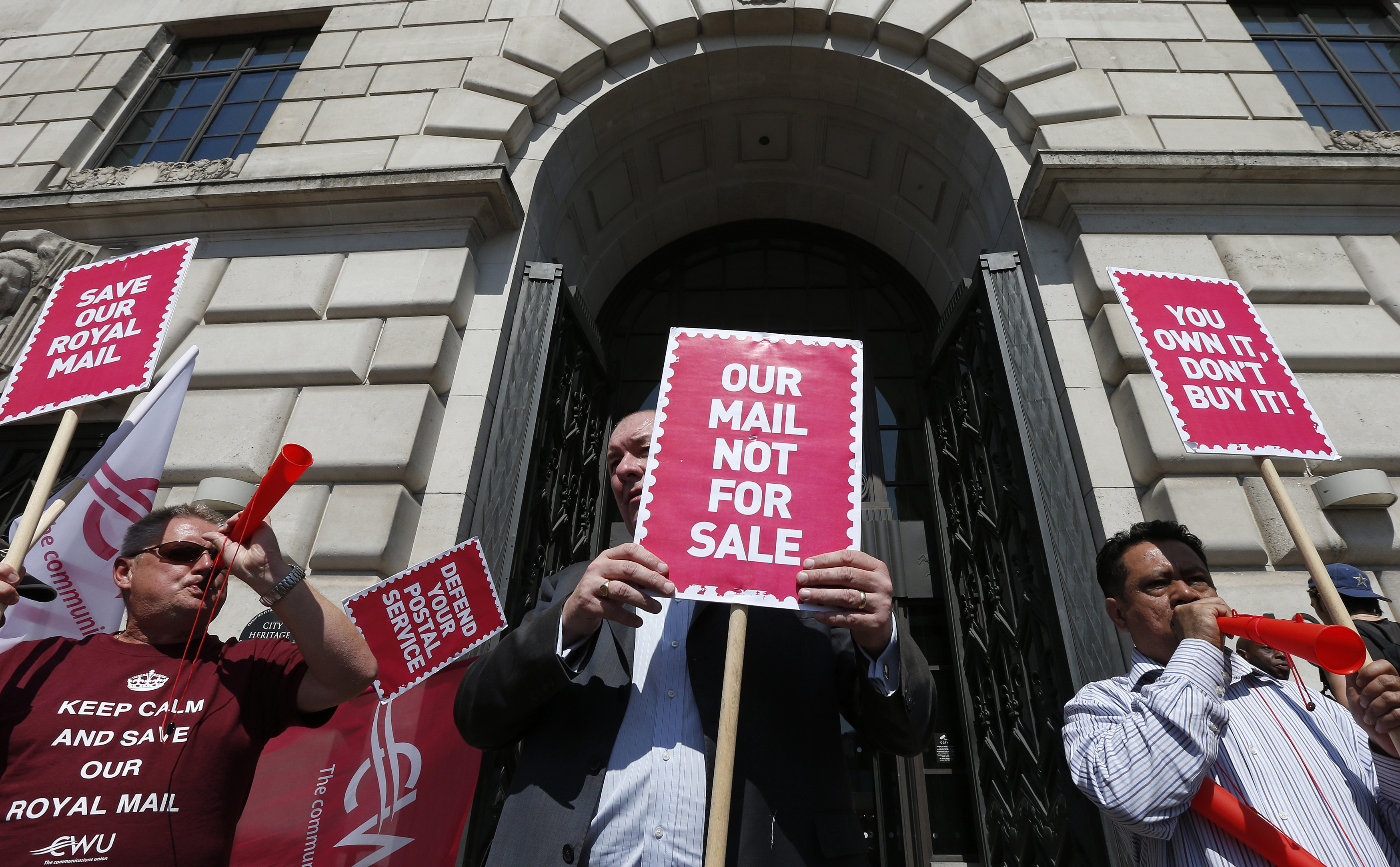Strike threat to newly privatised Royal Mail
More than 100,000 postal workers could stage walk-outs in protest at the way the Royal Mail sell-off was handled.

The Communication Workers Union (CWU) says it has balloted around 115,000 members over industrial action and is confident of a yes vote when the result is announced later.
A strike could disruption deliveries in the run-up to the busy Christmas period.
The union has accused the government of “deliberately creating a scramble” for shares, leading to private investors cashing in their allocation quickly to make a big profit.
Shares in Royal Mail gained 15p when formal trading started on the London Stock Exchange on Tuesday, making them almost 50 per cent more valuable than the government’s price tag last week.
They were first sold for 330p per share by the government on Thursday, after the group was valued at £3.3bn.
In the first day of dealing for many of the 690,000 small investors who bought stock, shares were up to 490p, boosting Royal Mail’s value to £4.9bn.
Dave Ward, CWU deputy general secretary, said: “The Royal Mail share price has soared further, bringing more proof that the company was undervalued by the Government’s City mates.
“The taxpayer has lost over £1bn already in this bungled fire sale of a cherished national institution. Postal workers cannot trade their shares for three years and they are far more concerned about their jobs than the share price.
“We’re confident our members will return a yes vote in the ballot result for strike action, strengthening our position to secure a deal on protecting jobs, services and terms and conditions in the company.”
He added: “The share price increase is making profits for wealthy private investors and faceless institutions – it’s not bringing any money into Royal Mail. The investment argument is a clear myth.
“We will not accept people maximising individual profit on the back of minimising the value, terms and conditions of postal workers.
“We’re determined this privatisation will not lead to the kind of job losses and downward pressure on pay and conditions we’ve seen in other industries and we’re seeking a legally-binding agreement to protect jobs.”
Ballot papers were sent to over 115,000 Royal Mail and Parcelforce workers in the first national strike ballot in the company since 2009.
Business Secretary Vince Cable has been asked to give fresh evidence to a committee of MPs over the privatisation, and investment bank Lazard is set to be questioned by the business select committee next month over the pricing of Royal Mail and concerns that institutional investors were allowed to buy in too cheaply.
-
Latest news
-
Year of civil war in Sudan ‘a nightmare of hunger and displacement’4m

-
Israel fears repeat Iran attack, says former editor of Jerusalem Post4m

-
How long could it take to clear the Rwanda asylum seeker backlog?3m

-
Rwanda asylum boost for Sunak as bill expected to become law2m

-
Donald Trump trial: day one of historic Stormy Daniels court case4m

-




